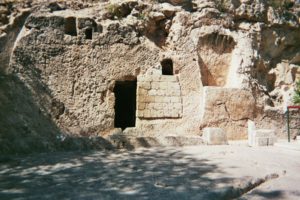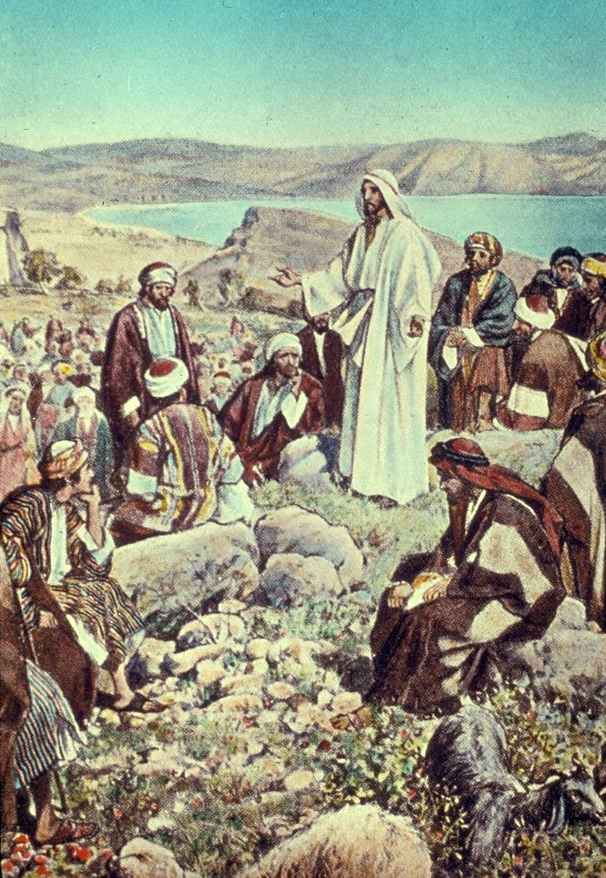Once at my church, we were taking the bread when a child’s voice rang out, saying “But I don’t want to be quiet!” We usually treat this time of our worship with solemnity, stillness, and silence. And this is good. But quiet reverence is not the only form of worship that our God accepts. We have motion-controlled lights in the hallways and classrooms in our building. What if we had them here, in our worship space? Would the lights go out during parts of our service?
We have songs that speak of being loud. “Go, Tell it on the Mountain.” “I Love to Tell the Story.” “We Have Heard the Joyful Sound.” “I Sing the Mighty Power of God.”
Let us tell the Good News about Jesus! The next time you receive the bread, remember, “This is the Body of Christ, broken for you.”
 Have you told your children what Christ means to you? Some time ago, my daughter heard me practice leading “Low in the Grave He Lay.” She caught me crying and asked why. I explained that the Resurrection is the most important event in history. It means that death is not the end; that we can be with our loved ones again; and most importantly, that we can be with our God now, and ever, and unto the ages of ages. And that truly is Good News!
Have you told your children what Christ means to you? Some time ago, my daughter heard me practice leading “Low in the Grave He Lay.” She caught me crying and asked why. I explained that the Resurrection is the most important event in history. It means that death is not the end; that we can be with our loved ones again; and most importantly, that we can be with our God now, and ever, and unto the ages of ages. And that truly is Good News!
We share the Gospel as we share this meal. The next time you receive the fruit of the vine, remember, “This is the Blood of Christ, shed for the forgiveness of your sins.”









5